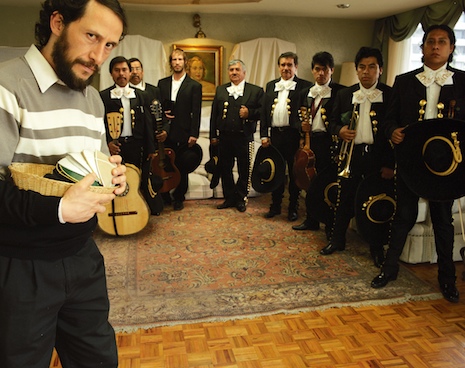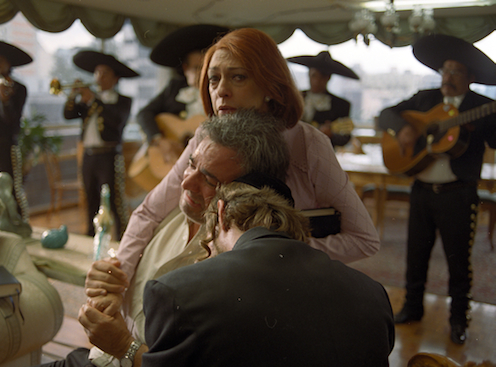My Mexican Shivah
Full Description
When Moishe Tartakovsky, exuberant patriarch of a Mexico City family, dies of a heart attack in the middle of a raucous mariachi party, he leaves behind a large and complicated web of secrets and relationships that must be untangled over the course of his seven-day shivah (the prescribed mourning period in Jewish custom). In this sly and charming dysfunctional-family drama, the comically unraveling shivah will serve to account for the life of the deceased, but more importantly will bring those he left behind to account for themselves.
Those doing the untangling and accounting include Moishe’s bitter daughter, still smarting over his having jilted her mother for a non-Jewish mistress; a ne’er-do-well grandson who seems to have miraculously reappeared from Israel transformed into a pious Hasid; a divorced son who needs a delicate favor from a fellow mourner; a motley crowd of groupies, bewildered maids and mariachi musicians; and two mysterious, elderly Yiddish-speaking bystanders—named Aleph and Bet—who diligently argue the merits and demerits of Moishe’s life and record them in a celestial ledger.
Director Alejandro Springall commissioned renowned Mexican Jewish writer and Amherst scholar Ilan Stavans to come up with a story set in Mexico City’s small but vibrant Jewish community (in a city of 18 million, there are fewer than 20,000 Jews, barely 0.1 percent). Published as the novella Morirse está en hebreo (Dying in Hebrew), the film is expertly produced for the screen by John Sayles and Maggie Renzi. In Springall’s colorful adaptation, the vitality and diversity of Stavans’s characters and the terrific score by The Klezmatics turn My Mexican Shivah into an affectionate, tearful party that’s hard to leave.
Director(s)
Country(ies)
Language(s)
w/English Subtitle
Release Year
Festival Year(s)
Running Time
102
Cast


